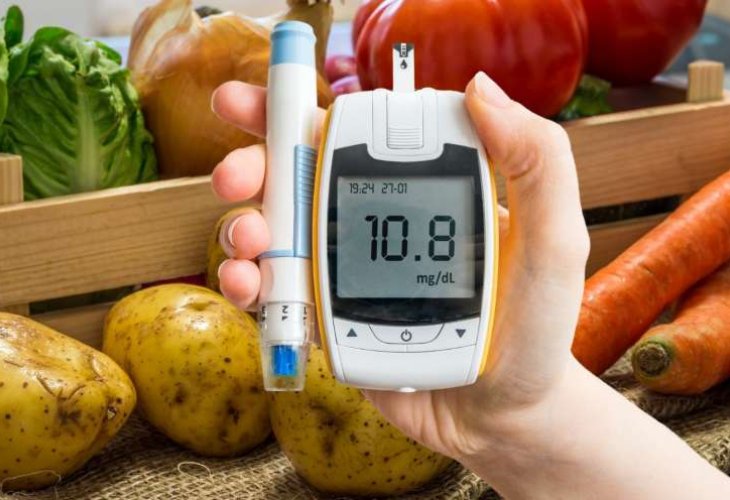I've Been Diagnosed with Prediabetes: What Does It Mean?
If you've been diagnosed with prediabetes, your blood sugar levels aren't high enough to be classified as Type 2 diabetes, but they are high enough to warrant change. Prof. Julio Weinstein shares the immediate health changes you need to make.
 (Photo credit: shutterstock)
(Photo credit: shutterstock)Normal fasting blood sugar level is below 100, while the level for someone with prediabetes ranges from 100 to 126 mg/dl. Once levels exceed 126, it's classified as Type 2 diabetes. This indicates that the body is resisting insulin's activity or not producing enough to maintain normal blood sugar levels. Other terms used to describe prediabetes include impaired fasting glucose, glucose intolerance, impaired glucose tolerance, and latent diabetes.
Carbohydrate-rich foods raise blood sugar levels more than other foods do. During digestion, the pancreas produces insulin, which binds with blood sugar to use it as energy. If you're identified as prediabetic, sugar begins to build up in your bloodstream instead of fueling your cells. This situation occurs with insulin resistance, believed to be the number one cause of prediabetes.
A healthy weight makes it easier for insulin to work effectively and can help maintain blood sugar in the normal range. Healthy eating and regular physical activity are the best ways to help restore blood sugar to a normal range.
What Factors Increase the Risk of Developing Prediabetes?
The same factors that may increase the risk of Type 2 diabetes also increase the risk of prediabetes, such as:
- Being overweight or obese
- Abdominal obesity
- Family history of diabetes
- Sedentary lifestyle
- Age 35 and older
- History of gestational diabetes
- High triglyceride levels
- High blood pressure
- Lack of sleep
- Skipping breakfast
- Disruption of the biological clock by night shifts
When Should You Get Tested?
If you're 35 or older, you should test your fasting sugar level annually during your physical check-up. If you're a woman who had gestational diabetes, it's crucial to check your blood sugar annually, as it raises your risk for prediabetes and Type 2 diabetes.
What Are the Symptoms of Prediabetes?
People often don't know they have prediabetes because they might not experience any symptoms.
People with prediabetes, or especially Type 2 diabetes, may experience some of the following symptoms:
- Fatigue
- Blurred vision
- Frequent urination
- Increased thirst
- Increased hunger
What Are the Next Steps?
After diagnosis, you might be referred to a diabetes dietitian to personalize a plan that helps you manage your health and well-being.
You'll also learn lifestyle skills for managing prediabetes and Type 2 diabetes. This might include meal planning, exercising, medication management, stress relief, and working on proper sleep. People with prediabetes may significantly prevent or delay the development of Type 2 diabetes through lifestyle changes, including achieving and maintaining a healthy weight. Those with high sugar fluctuations are strongly advised to use a continuous glucose monitor to regularly track levels throughout the day, ideally using a non-invasive continuous monitor to understand how foods affect sugar levels.
It's important to know that most prediabetes treatment programs do not include medications or routine blood sugar monitoring, but rather self-management through a balanced and healthy lifestyle change.
Remember: Prediabetes isn't diabetes. It also doesn't mean latent diabetes will inevitably become overt. It's a reversible condition with high chances to eliminate it and avoid diabetes.
What Are the Implications of Diabetes?
Diabetes can have long-term health implications.
Your risk of developing Type 2 diabetes is higher if you have prediabetes, increasing your health risk for:
- Heart disease
- Stroke
- Eye damage, including blindness
- Limb amputations
- Kidney failure
Discuss with your healthcare provider if you have questions or concerns about your sugar levels or if you develop any symptoms of Type 2 diabetes.
Prof. Julio Weinstein is the Director of the Diabetes Research Unit at Wolfson Hospital and a senior diabetes physician at the DMC Center for Sugar Treatment

